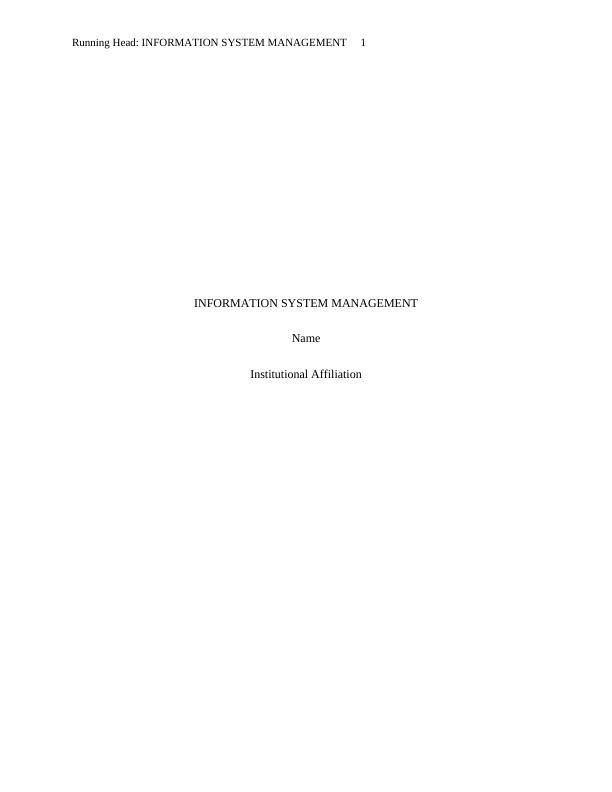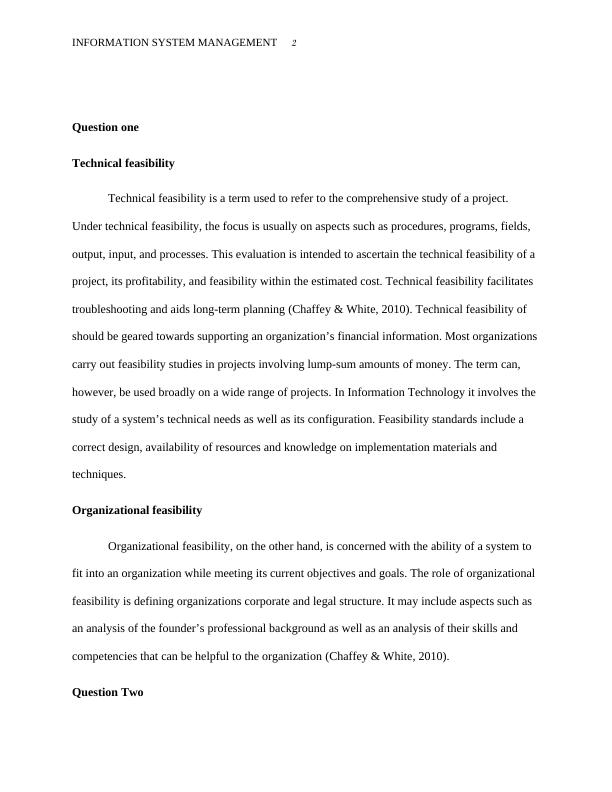Information System Management: Technical and Organizational Feasibility, Business Processes, Roles, Resources, and Data Flows
4 Pages625 Words372 Views
Added on 2023-06-11
About This Document
This article discusses technical and organizational feasibility, business processes, roles, resources, and data flows in information system management. It explains the importance of technical feasibility in evaluating a project's profitability and feasibility within the estimated cost. It also defines organizational feasibility and its role in defining an organization's corporate and legal structure. The article further explains business processes, roles, resources, and data flows, and how they contribute to achieving an organization's goals. The article concludes with references for further reading.
Information System Management: Technical and Organizational Feasibility, Business Processes, Roles, Resources, and Data Flows
Added on 2023-06-11
ShareRelated Documents
End of preview
Want to access all the pages? Upload your documents or become a member.
BUSINESS RESSOURCES TABLE OF CONTENTS INTRODUCTION 3 PHOTON REGISTRATION PROCESS OF NEW PERSONS 4 P2/ Employability, Personnel and Communication Skills for Finance Manager
|16
|3413
|452
Assignment on the Business Resources
|12
|3593
|57
Proposal of Enterprise Information System for Healthcare Business
|9
|1882
|112
Study | Business Administration
|13
|3087
|132
Facilitating Learning Activities for Information and Knowledge Management
|19
|5210
|78
Roles and Responsibilities of Finance Controller : Report
|16
|4305
|201


